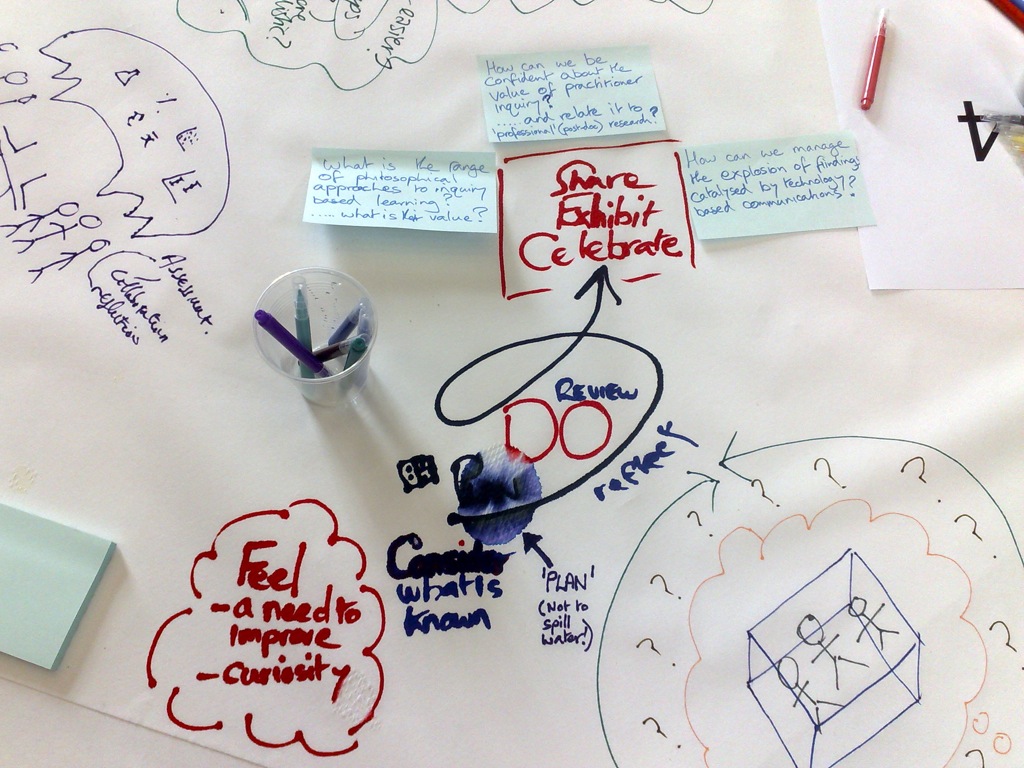Dear Secret Teacher,
I found your report in the Guardian moving and important – recognition and acceptance that we have a problem is vital to recovery and I wish you well with yours.
I, like you, subscribe to Hargreaves’ “unconditional positive regard” and I am an unreformed “new romantic”, tempered with a little “lion tamer” and “entertainer” when needed!
Nevertheless, I was troubled by this paragraph:
“They say the first step to recovery is admitting you have a problem. At last I can admit that, yes, I do have a mental health problem. I don’t know what it is about me but, without my daily dose of antidepressants, I stop being the man I should be. There is a chemical inbalance in my brain that needs this but I have stopped wondering why: I just accept it. I have depression and, like my asthma, it’s something I have to learn to live with.”
I rewrote it in my own words as though speaking for society rather than as an individual:
“They say the first step to improvement is admitting there is a problem. At last society can admit that, yes, it does have more people experiencing mental health problems. We don’t know what it is about society but, without daily doses of antidepressants, people stop being as functional as they should be. There is a chemical inbalance in their brains that needs this but we do not need to wonder why: we just accept it. They have depression and, like asthma, it’s something they have to learn to live with.”
I find this rewrite unnacceptable!
It is not good enough for society to be satisfied with recognition of illness: we must challenge the root cause. In this case, the currently accepted model, that there is a chemical imbalance in brain, is not supported by the scientific evidence, as most psychiatrists will now agree ( see http://joannamoncrieff.com ).
An obvious alternative explanation for society to consider is that ill-health may be caused by the increased complexity and demand placed on teachers, especially if they are child-centred in their approach and subject to ever increasing inspection, parental demands and concerns about risk. I experienced a little of this stress recently as a school governor (my teaching days were in the seventies): we were expected to take responsibility for and annually review over twenty school policies, all with the threat of imagined risks if we were to put a foot wrong – and we weren’t even doing the day-to-day job!
My view is that we, society, needs to take this seriously: that we are placing too high a demand on teachers. When this is combined with teachers’ dedication to every individual child, management by targets & competition and a media habit of blaming teachers for problems in education, it can surely explain the kind of breakdown you report. It is in my view society’s responsibility to find solutions through better organisation of education. Sadly, it is simpler to blame the individual’s biochemistry and hand out unproven chemical ‘cures’ to paper over the cracks. It remains to be seen if it is cheaper or more sustainable.
I hope you do not take my words as suggesting that you were not up to the challenge of modern society and that if only you could “pull your socks up” you’d be able to overcome your condition – I am anxious here to show that the argument that we should “man-up” as individuals to modern problems is ignorant and inadequate. My purpose in writing this is to say we, society, have created the conditions for people to suffer and we should take our collective responsibility seriously. I suggest that for every person like you, there will be many more who aren’t able to recognise a mental health problem, but who are quietly self-medicating with alcohol.
With unconditional positive regard and the greatest respect to all those suffering,
Richard
PS Thanks to @Yorks_Bunny for alerting me to this, and for giving me this link to a Secret Teacher blog from a year ago which also addresses this issue.





